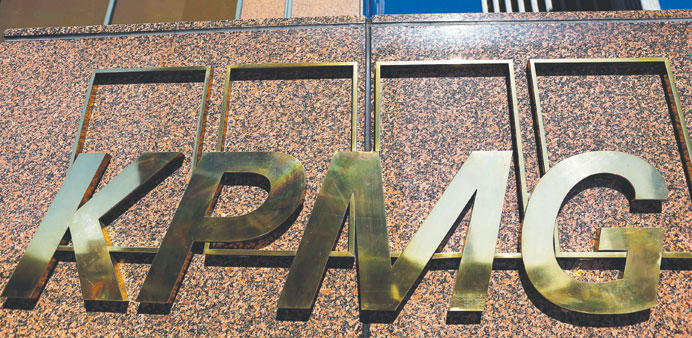Qatar has achieved self-sufficiency in most of the essential products of daily use including milk and several other perishables, KPMG said and noted the country’s supply chain is extremely well diversified, leaving a remote possibility for disruption.
The supply chain, which was strengthened during the blockade, is well supported by a strong logistics infrastructure powered by the new Hamad Port at Mesaieed and Qatar Airways Cargo service.
The retail supply chain for essential food products has not witnessed a notable impact so far, except for an extremely brief period when residents began stockpiling post announcement for businesses to shutdown, KPMG said in a recent report on “Covid-19 impact on Qatar”.
“Non-food retail supply chain is not a concern at this stage as most of the stores are closed, however, issues such as goods enroute for delivery are expected to see some delays.
“Although not impacted to date, in the event of prolonged business closure and reduction of the workforce, some logistical challenges may emerge,” KPMG said.
Retail malls are facing difficulties as the countermeasures of the pandemic has led to closure of all stores (with a very few exceptions such as pharmacies, supermarkets, etc.).
As most of the retail properties in Qatar are new, they are highly leveraged. This leaves mall owners with limited capacity to provide rent relief to tenants. A few malls have extended such support, but, unless they receive Government support, this will be difficult to sustain, the report said.
Post Covid-19, it may be a necessity to obtain some form of a green certification implying that the mall is “fit to use” for consumers and also maintaining health, safety and hygiene standards.
“Food retailers are not facing significant demand issues but ensuring regular supplies remains a concern. Qatar has successfully overcome similar challenges during the blockade, and had already established a strong supply chain network. This preparation has allowed food retailers to effectively manage supply chain challenges during the current pandemic,” KPMG said.
“Non-food retailers are likely to face challenges with the aging of retail stock, which they may have to offload at high discounts once the pandemic situation stabilises. There is a significant impact on the cash conversion cycle of nonfood retailers in the short term and a corresponding reduction in their capacity to arrange for new stock.
“It is estimated that it may take between six months to a year for retailers to revive from this disruption. Large retailers may be at an advantage as their overall cost per sq m is generally lower than small and unorganised retailers,” KPMG noted.
The retail revolution in Qatar started post the 2006 Asian Games. Today, there are more than 25 retail malls, several high street retail neighbourhoods and shopping complexes spread across the country.
“The ongoing pandemic has restricted free movement of families and most of them are forced to use online shopping options, even though essential retail is still open for business. This has a potentially huge impact, as it possesses the power to change the consumer’s shopping behaviour fundamentally.
“In the current environment, challenges for the retail sector lies in managing the debt burden, cash flow management, supply chain, maintaining health, safety and hygiene standards for both consumers and staff, deliveries to the doorstep and adapting to expected change in consumer behaviour and preferences in the future,” the report said.
Business / Business
Qatar achieves self-sufficiency in essential products; supply chain well diversified: KPMG


